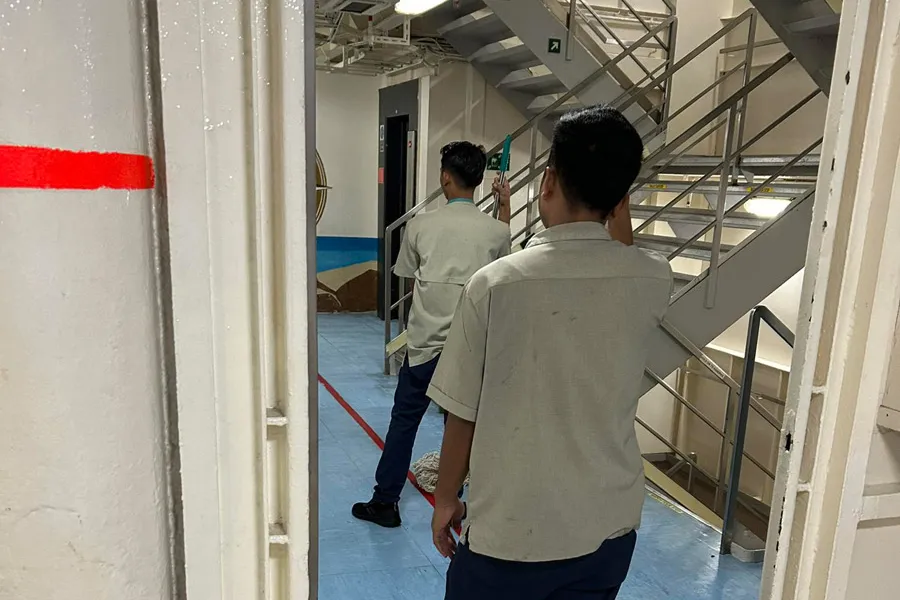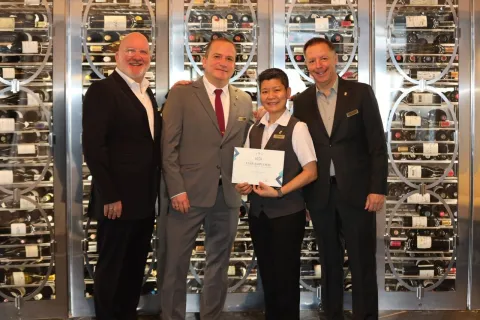
Most crew members have a love & hate relationship in terms of working on a cruise ship. There are many fringe perks available that can make their contract onboard enjoyable. Yet, there are also some things that need improvement.
Here, we take a look at five aspects that tend to be less favored among crew members working on cruise ships:
Demanding Work Hours:
Almost every role on board a cruise ship comes with extended working hours, often involving repetitive and tiring tasks. On sea days, the workload can be especially intense, with daily shifts ranging from 10 to 14 hours. Contracts can last from 4 to 8 months without any days off and limited break time. Understandably, these demanding schedules can lead to exhaustion and burnout, causing some crew members to find them challenging.
Safety Drills:
In addition to their regular duties, crew members are required to participate in safety drills, which can occur during their break or rest times. While everyone acknowledges the importance of these drills, they can be somewhat bothersome for crew members.
Dining Options:
Cruise lines aim to provide crew members with a variety of dining choices that cater to different tastes and dietary preferences, usually served in the crew mess, the primary dining area for crew members. However, some may find the daily menu lacking in diversity and quality, leading to monotony over time. Another issue that many crew members face is limited food access due to their varying work schedules. Meals are typically offered buffet-style at specific times for breakfast, lunch, and dinner, leaving crew members without options outside those hours.
Cabin Size:
Accommodations for crew members are often based on their job positions, with lower-ranking crew members usually assigned to cabins on the lower decks. These cabins are typically small, with limited space to move around, and are often shared with one roommate. A common challenge arises when both roommates have to get ready for work simultaneously, as the confined space can make it difficult. Additionally, some ships have communal bathrooms and showers, which must be shared with other occupants on the same deck.
Social Hierarchy:
Cruise ships adhere to a strict social hierarchy that determines crew members' salary, living conditions, and access to various areas of the ship. Higher-ranking positions come with perks such as private cabins, access to guest areas, and improved living conditions. In contrast, lower-ranking crew members experience different treatment and may not have access to upper decks or guest areas. These distinctions are also evident in dining arrangements, as officers and staff members enjoy more diverse dining options, including guest dining areas, while lower-ranking crew members do not have the same privileges.
Crew Insights
Articles and experiences shared by crew members working on cruise ship. Find out more about ship life at sea together with tips and advices for first time crew members and cruise oldtimers.












